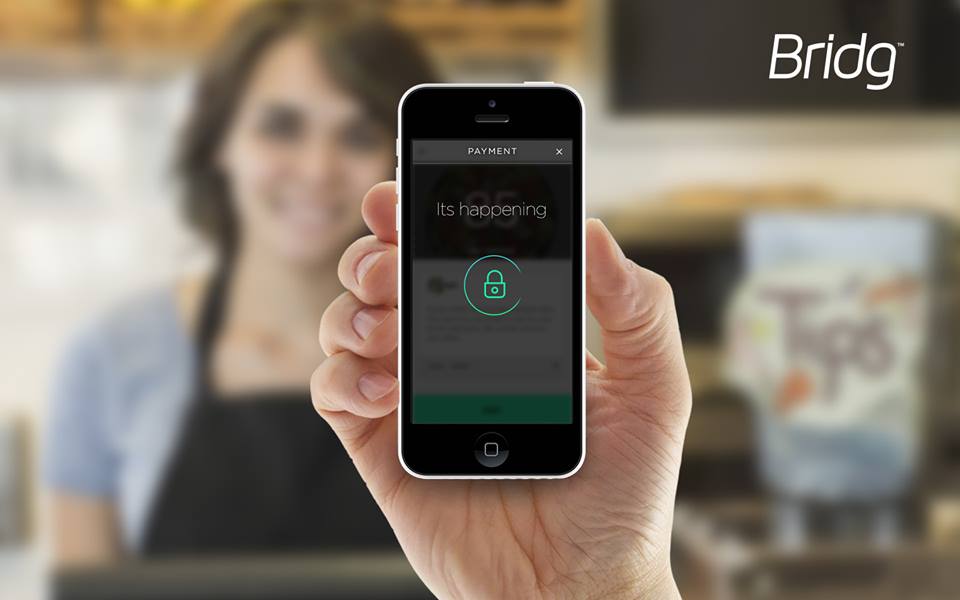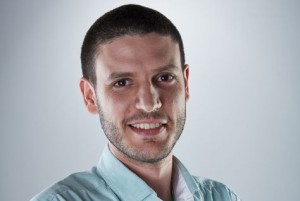
A Dubai startup is on the verge of potentially disrupting the banking industry and changing our buying habits.

We caught up with Moussa Beidas, a 30-year-old Palestinian born and raised in the UAE, to explain Bridg, the revolutionary business that he co-founded.
Bridg is a platform for smartphone payments. While the idea of digital wallets and payment apps has been around, with the popularity of things like Apple Pay in the West, Bridg is far more flexible for emerging markets as it neither requires an Internet connection nor a bank card. Combined with the widespread proliferation of smartphones in developing countries, these factors signify huge potential for Bridg to see success.
Investors certainly agreed; Bridg was the only startup from the Middle East to be selected for this year’s The Next Web conference in Amsterdam and it won the Startup MENA GCC Pitch Challenge in April.
Take a look at what Beidas had to say about Bridg and the road to where he is now, below:
What makes Bridg revolutionary?
Bridg has made it possible for you to pay with your smartphone even if you are not connected to the Internet. We have made being connected during the payment process redundant whilst still maintaining the same level of security and safety around all the private data being used to make that transaction possible. This naturally opens up a whole new world for smartphone payments and makes carrying your smartphone all you need.
What is your response to those who are wary of using Bluetooth for smartphone payments?
Bluetooth and other connective technologies are only as secure as the information they’re sharing. Our patented OneConnect technology allows us to tokenise a token, and double up on the industry standard security requirements making it really challenging to crack a transaction — and even if that where to occur, the information stolen will be useless to anyone as we are not actually sharing your details via our Bluetooth handshake.
How is Bridg different from other digital wallets/payment apps?
We are not confined to one specific source of payment, we plug in to all types of payment processors across the planet. Each one of them provide unique and helpful ways for people to get money into their smartphone and keep it safe.
So someone in the Philippines can purchase a scratch card and use that to top up their Bridg wallet, whilst someone else in Saudi Arabia can directly transfer funds via their bank. This allows our platform to be as flexible and future driven whilst rapidly scalable in the most secure way possible.
What are your regional expansion plans? How do you see Bridg working in a market like Egypt, where debit/credit cards aren’t predominantly used by the masses?
As mentioned above, the great thing about partnering with local processors is that each one of them has already built a business around financial inclusion. They have pinpointed the challenge and are building a business around the solution. So the same way more unbanked users in Egypt are being able to make e-commerce purchases via top-up methods, they too will be able to do use the same method to top up their virtual wallet.
We are looking to expand across the GCC in the next six months, with Egypt and Saudi Arabia being our primary targets in the next 12 months. Our expansion plans will then take us to developing countries like India, Pakistan, the Philippines and Indonesia, to name a few.
What is the toughest lesson you’ve learned in your entrepreneurship journey?
Failure is your best friend. If you have an idea that could change the world, and people react by saying no, then that just means that you need to try harder. The pace at which you do so will determine whether you last or get destroyed.
The Middle East is as far from startup friendly as possible — you either see that as an opportunity, or you wait around like everyone else. All the noisy PR to the contrary is actually making things harder for aspiring businesses looking for support from more experienced veterans in the field.
What advice do you have for other aspiring tech entrepreneurs?
If you want to make a difference here, then look for ways to innovate for here, from here. Startups that are simply replicating existing proven business models are an important part of a growing startup ecosystem, but true and unique innovation are the indicators of maturity. The more innovative your idea is, the higher the risk, and if you’re risking it, then might as well make it count.
When you were a kid, what did you want to be when you grew up?
I was adamant I was going to be an airline pilot up until the age of 17 when I realised it would have been a fantastic bachelor lifestyle choice, but not so much if you wanted to start a family one day. I ended up becoming a designer instead. I’m gad how things turned out because my head’s in the clouds either way.
WE SAID THIS: Sign up for the early release of Bridg here.


